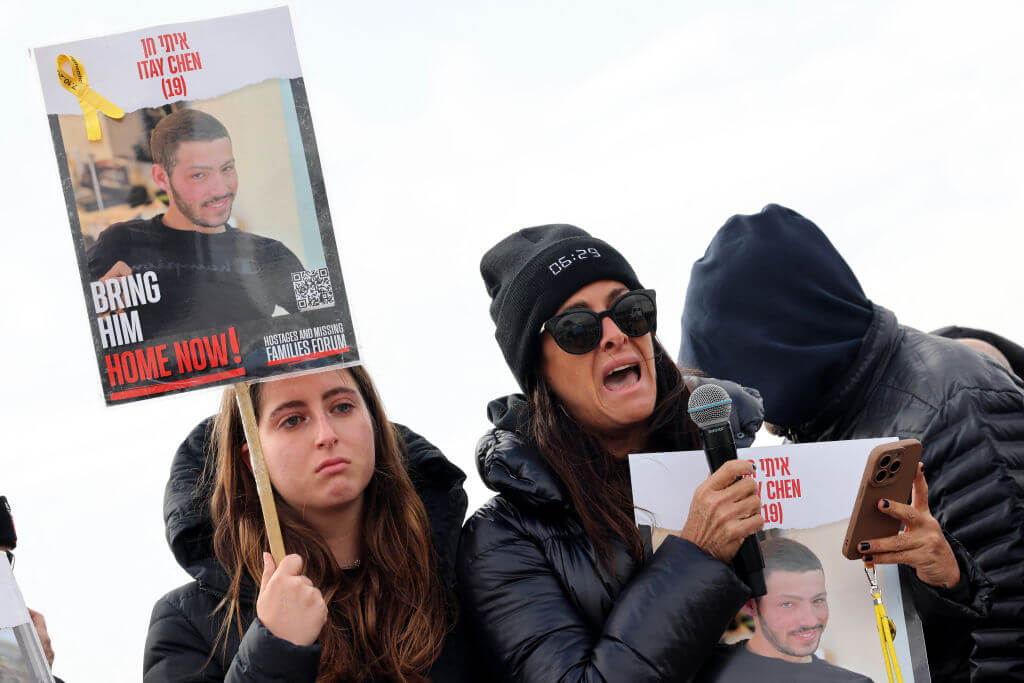Itay Chen, 19, American-Israeli soldier missing since Oct. 7, is confirmed dead by IDF
Chen’s parents had become two of the most visible advocates for those being held hostage by Hamas

Relatives of Israeli hostages held by the Palestinian Hamas movement carry a picture of Itay Chen in January, 2024. Photo by Getty Images
(JTA) — Israel’s military announced the death of an American-Israeli soldier who had been missing since Oct. 7, ending months of uncertainty during which his parents emerged as two of the most visible advocates for the more than 100 people still being held hostage by Hamas.
Itay Chen, 19, from Netanya, was killed and his body abducted following a battle with terrorists during the Hamas onslaught, the Israel Defense Forces announced Tuesday, basing its conclusion on new intelligence information. Chen was a sergeant with the 7th Armored Brigade’s 75th Battalion, stationed on the Gaza border.
On March 7, his mother, Hagit Chen, was a guest of Iowa Republican Sen. Joni Ernst during President Joe Biden’s State of the Union address.
Days after the Oct. 7 attacks, his father, Ruby Chen, an American-Israeli venture capitalist, and the relatives of 13 other Americans who were missing after the invasion, joined a video call with Biden. The native New Yorker has also lobbied lawmakers in Washington and New York, and diplomats at the United Nations, to urge pressure on Hamas for the release of hostages and information about their condition and whereabouts.
Itay Chen was one of six U.S. citizens still believed to be alive in Gaza more than five months after the attack.
Shortly after Oct. 7, Chen’s younger brother, Alon, celebrated his bar mitzvah in Netanya. Thousands of neighborhood residents came out to support the family .
Chen’s family will not hold a funeral or sit shiva, the traditional seven-day Jewish mourning period, until his body is returned from the Gaza Strip, the Times of Israel reported.
This article originally appeared on JTA.org.
A message from our CEO & publisher Rachel Fishman Feddersen
I hope you appreciated this article. Before you go, I’d like to ask you to please support the Forward’s award-winning, nonprofit journalism during this critical time.
We’ve set a goal to raise $260,000 by December 31. That’s an ambitious goal, but one that will give us the resources we need to invest in the high quality news, opinion, analysis and cultural coverage that isn’t available anywhere else.
If you feel inspired to make an impact, now is the time to give something back. Join us as a member at your most generous level.
— Rachel Fishman Feddersen, Publisher and CEO